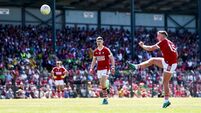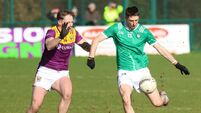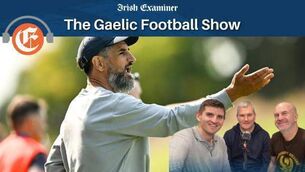Cullen influence has helped Gavin ensure Dubs train as they play

Eleven years ago, Bryan Cullen was an employee of Ulster Bank. It was merely a means to an end. Having graduated three years previously with a sports science and health degree, the job made little sense but for the fact he was playing inter-county football and the bank were associate sponsors of the All-Ireland SFC.
Mike McGurn knew Cullen was destined for other things. Asked by Seán Boylan to train Ireland’s International Rules team before they headed out to Australia, the former Ireland rugby fitness coach found panel member Cullen was his keenest of students.














